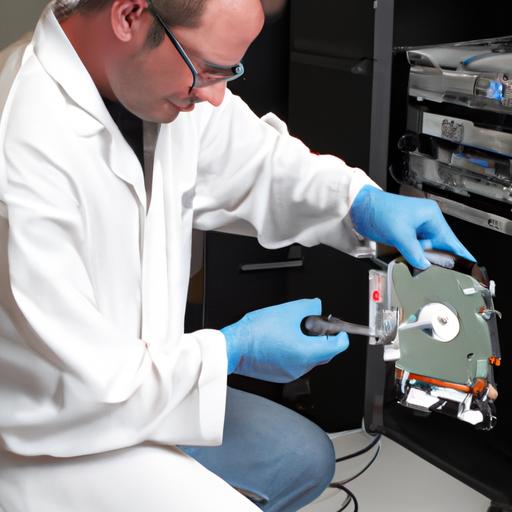Introduction
Have you ever experienced the sinking feeling of a dead hard drive, containing all your precious data? The importance of recovering data from a dead hard drive cannot be overstated. From cherished memories to crucial work documents, losing data can be devastating. But fear not, because in this comprehensive guide, I will walk you through the process of recovering data from a dead hard drive step by step.
When faced with a dead hard drive, the initial panic can be overwhelming. However, understanding the steps involved in data recovery can provide clarity and a sense of direction. Whether it’s a hardware failure or accidental deletion, the journey to retrieving your data begins with a thorough understanding of the recovery process. Let’s delve into the world of data recovery and unlock the secrets to salvaging your invaluable information.
Understanding a Dead Hard Drive
Common Causes of Hard Drive Failure
When it comes to hard drive failure, several factors can contribute to the demise of your storage device. From physical damage due to accidental drops or mishandling to logical issues such as file system corruption or malware attacks, the causes of hard drive failure are diverse. Understanding these common causes can help you identify potential risks and take preventive measures to safeguard your data.
Signs That Indicate a Hard Drive Is Dead
Detecting the signs of a failing hard drive early on can be crucial in preventing complete data loss. Symptoms such as unusual noises emanating from the drive, frequent system crashes, slow performance, or unresponsive behavior can indicate underlying issues with your hard drive. Recognizing these warning signs and taking prompt action can increase the chances of successful data recovery before it’s too late.
Preparing for Data Recovery
Necessary Tools and Software for Data Recovery
Before embarking on the data recovery journey, it is essential to equip yourself with the right tools and software. A reliable data recovery software can make a significant difference in successfully retrieving your data from a dead hard drive. Look for reputable programs that are known for their effectiveness in recovering lost files. Additionally, having the necessary hardware tools, such as a SATA/IDE to USB adapter or a hard drive docking station, can facilitate the data recovery process.
Best Practices for Handling a Dead Hard Drive
When dealing with a dead hard drive, it is crucial to handle it with care to avoid further damage. Avoid attempting DIY repairs that could potentially worsen the situation. Keep the hard drive in a safe and static-free environment to prevent any additional harm. If you are unsure about how to handle the hard drive properly, it is recommended to seek professional assistance. By following best practices in handling a dead hard drive, you can increase the chances of successful data recovery without causing irreversible damage.
Methods for Data Recovery
DIY Methods for Recovering Data from a Dead Hard Drive
When faced with a dead hard drive, the first instinct may be to attempt DIY methods for data recovery. One common approach is using data recovery software designed to retrieve lost files from damaged drives. These tools scan the drive for accessible data and can often recover a significant portion of lost files. Another DIY method involves connecting the dead hard drive to another computer as an external drive to access and transfer data. However, it’s crucial to proceed with caution to avoid further damage to the drive.
When to Seek Professional Help for Data Recovery
While DIY methods can be effective in many cases, there are instances where seeking professional help for data recovery is the best course of action. If the data on the dead hard drive is extremely valuable or the drive has physical damage, consulting a professional data recovery service is recommended. These experts have specialized tools and expertise to handle complex data recovery scenarios, increasing the chances of successful recovery. Knowing when to enlist professional help can make a significant difference in the outcome of your data recovery efforts.
Tips for Successful Data Recovery
Important Considerations During the Recovery Process
When embarking on the journey of data recovery from a dead hard drive, there are several crucial considerations to keep in mind. Firstly, it is essential to avoid further damage to the hard drive. Handling the drive with care and seeking professional assistance when needed can prevent irreversible data loss. Additionally, maintaining a calm and patient approach throughout the recovery process can lead to more successful outcomes.
Preventing Future Data Loss
Prevention is key when it comes to safeguarding your data. Implementing regular backups of your important files is a proactive measure to prevent future data loss. Whether through cloud storage solutions or external hard drives, creating duplicates of your data ensures that even if a hard drive fails, your information remains secure. By staying proactive and vigilant, you can minimize the risk of facing a data recovery crisis in the future.
Conclusion
In conclusion, the ability to recover data from a dead hard drive is a crucial skill in today’s digital age. By following the steps outlined in this guide, you can increase your chances of successfully retrieving your lost data. Remember, prevention is always better than cure, so make sure to back up your data regularly to avoid future heartaches.
For more tips and tricks on data recovery and technology, visit travel.gametiptip.com. Don’t let a dead hard drive stand in the way of your precious memories and important files. With the right tools and knowledge, you can conquer the challenge of data recovery and emerge victorious. Stay informed, stay prepared, and never lose hope in the face of technology’s twists and turns.
